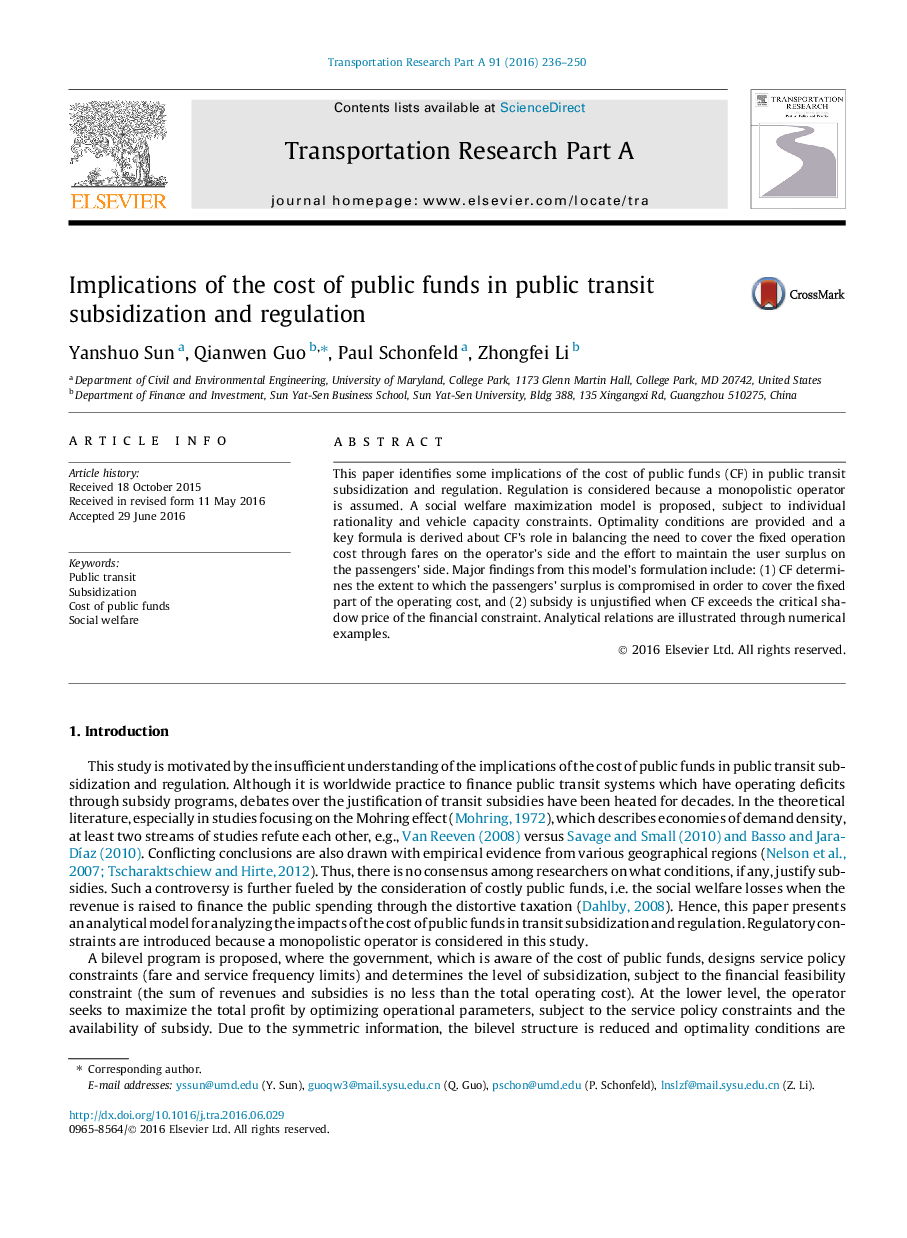| Article ID | Journal | Published Year | Pages | File Type |
|---|---|---|---|---|
| 310379 | Transportation Research Part A: Policy and Practice | 2016 | 15 Pages |
•The impact of the cost of public funds (CF) on public transit subsidization is explored analytically.•CF determines how much the passengers’ surplus is compromised to cover the fixed operating cost.•A public operator’s decision can be reproduced from this model’s optimality conditions.•Subsidy is justified until CF exceeds the critical shadow price of the financial constraint.
This paper identifies some implications of the cost of public funds (CF) in public transit subsidization and regulation. Regulation is considered because a monopolistic operator is assumed. A social welfare maximization model is proposed, subject to individual rationality and vehicle capacity constraints. Optimality conditions are provided and a key formula is derived about CF’s role in balancing the need to cover the fixed operation cost through fares on the operator’s side and the effort to maintain the user surplus on the passengers’ side. Major findings from this model’s formulation include: (1) CF determines the extent to which the passengers’ surplus is compromised in order to cover the fixed part of the operating cost, and (2) subsidy is unjustified when CF exceeds the critical shadow price of the financial constraint. Analytical relations are illustrated through numerical examples.
